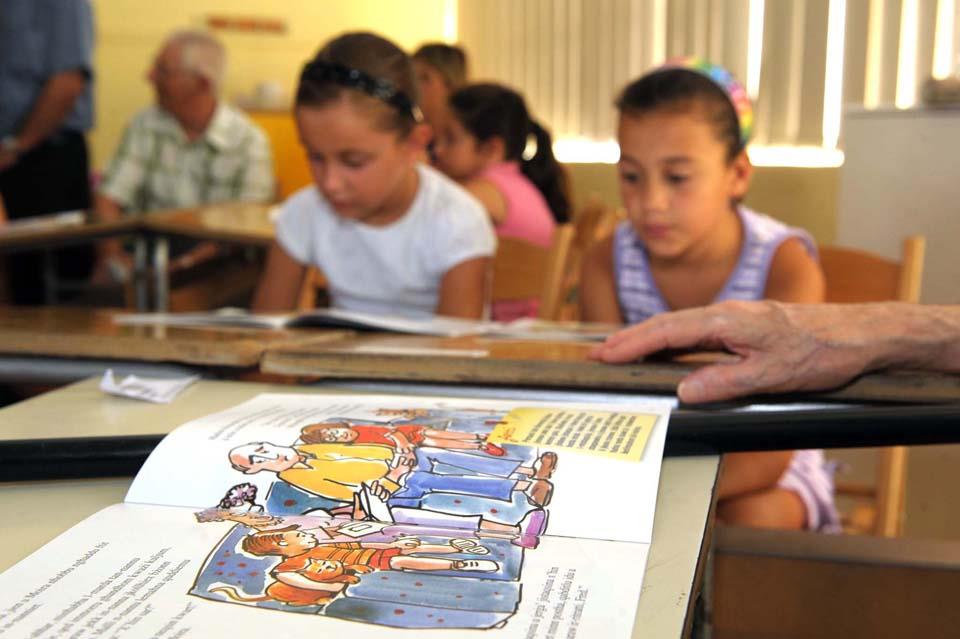The Education Ministry said it blocked the release of the names of representatives on Parents’ School Councils after a request by the PN following advice from the Data Commissioner.
The PN wanted the names of members so they could be contacted directly by the party to engage in an information gathering exercise to come up with proposals to improve the education system.
The government rebutted opposition claims that its attempts to contact Parents’ School Councils were ‘thwarted by the government’.
“All requests for data are treated with the utmost responsibility and in this case, the direction of the Office of the Data Protection Commissioner was sought and his advice followed,” the Education Ministry said in reply to questions put by The Malta Independent.
The issue came to a head after an apparent clash regarding what can be seen as “sensitive information” led to an obstacle for the Shadow Minister for Education, Therese Comodini Cachia, while making preparations to initiate a roundtable debate with representatives of the Parents’ School Councils on parental involvement in schools.

A misinterpretation of definition of sensitive data – Comodini Cachia
"Yes it is true that the Ministry has informed me that the name and surname of the President of the Parents' School Councils are sensitive information and, according to the Ministry, covered by Data Protection. I think this is a misinterpretation of what is sensitive data,” Dr Comodini Cachia commented to TMI when asked about the issue.
The Shadow Minister told this newsroom that all she wanted to do was send a personal invitation to representatives of the councils, “For this purpose, I asked the Heads of Schools to indicate to me only the name and surname of the person chairing the parents' council in their school. My request was intended solely to have the right name and surname for the invite to be sent to be personally addressed.”
Regarding the issue of sensitive information, Dr Comodini Cachia said: “Those who take on this role are performing a public service and I do not see how their name and surname could be considered to be sensitive data when this is sought by the Opposition. It often is data that is regularly published even on the leaflets and websites of schools which are accessible by all.”

Data Commissioner’s advice followed - Government
A spokesperson for the Ministry told TMI that the Data Commissioner’s advice was followed regarding the issue adding that it is “especially important since this data concerns private citizens who are not officials of the Directorate nor are they directly linked with the Directorate.” This goes directly against Dr Comodini Cachia’s comments about the parents having a public role.
“The direction from the Data Commissioner in this case was to get approval from the data subjects before forwarding their name to third parties. The Director General immediately wrote to College Principals for this approval to be requested to the relevant individuals,” the Ministry spokesperson said.
“Such process is important because had advice not been sought, laws safeguarding data protection would have been broken and the DG’s office safeguards the interests of the Head of School in situations such as this. This is why such queries are best sent to the administrative side, rather than schools directly.”
Nothing to do with 2014 issue - Government
This newsroom brought up the idea of the whole episode harkening back to June 2014, when the Association of Parents of Children in Church Schools was collecting signatures to send a letter of complaint to the Commissioner of Data Protection regarding the implications of a legal notice. The notice at the time essentially empowered the education and employment ministry to request schools to provide it with detailed and highly sensitive information on any or all individual students ranging from as early as childcare and kindergarten right up to university level.
“This has nothing to do with 2014,” the Ministry retorted. “The issue was thoroughly explained at the time and the legislation was fully approved by the Office of the Data Commissioner and in line with data protection laws.”
In January 2015, the law was redrafted and amendments to the data protection act had made it illegal for educational authorities to request any data pertaining to students younger than 16. Any sensitive personal data could only be requested from schools with the explicit consent of a parent or legal guardian.
“Since 2013, the Education Ministry has worked with all Shadow Ministers in allowing full access to the Ministry’s leading civil servants and senior offices within its remit, in what is a positive step towards transparency,” the ministry spokesperson said.